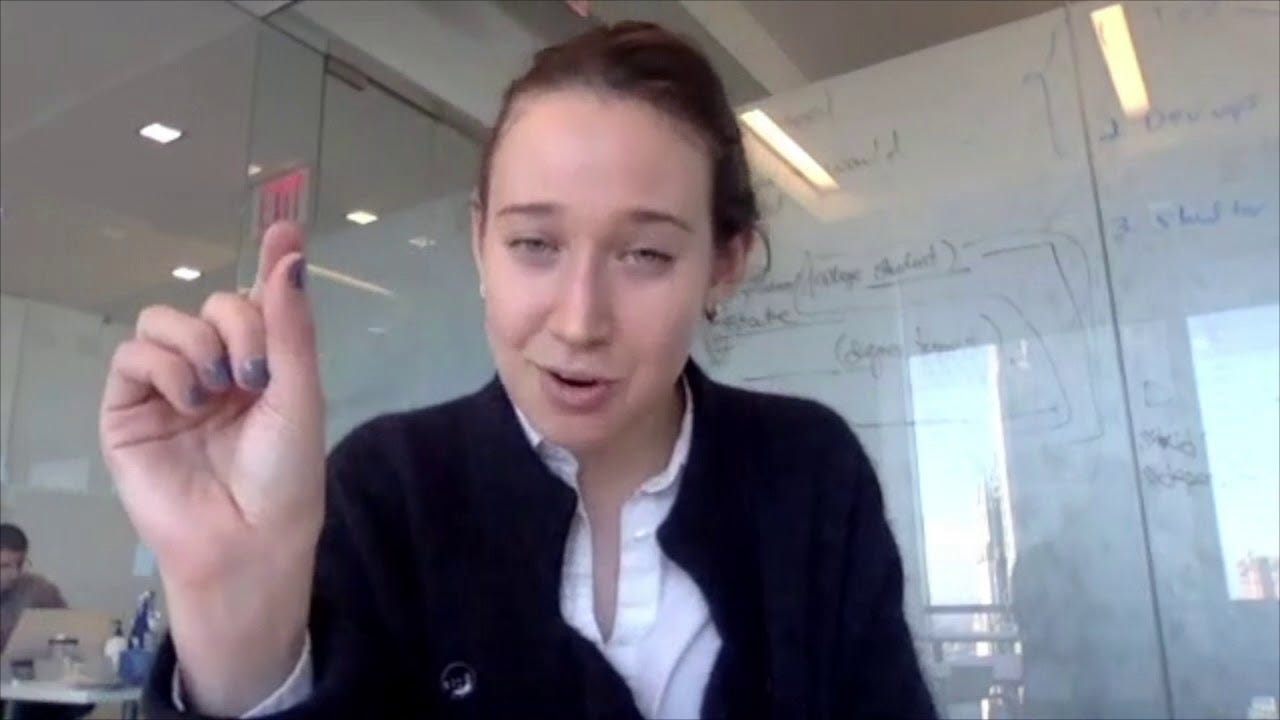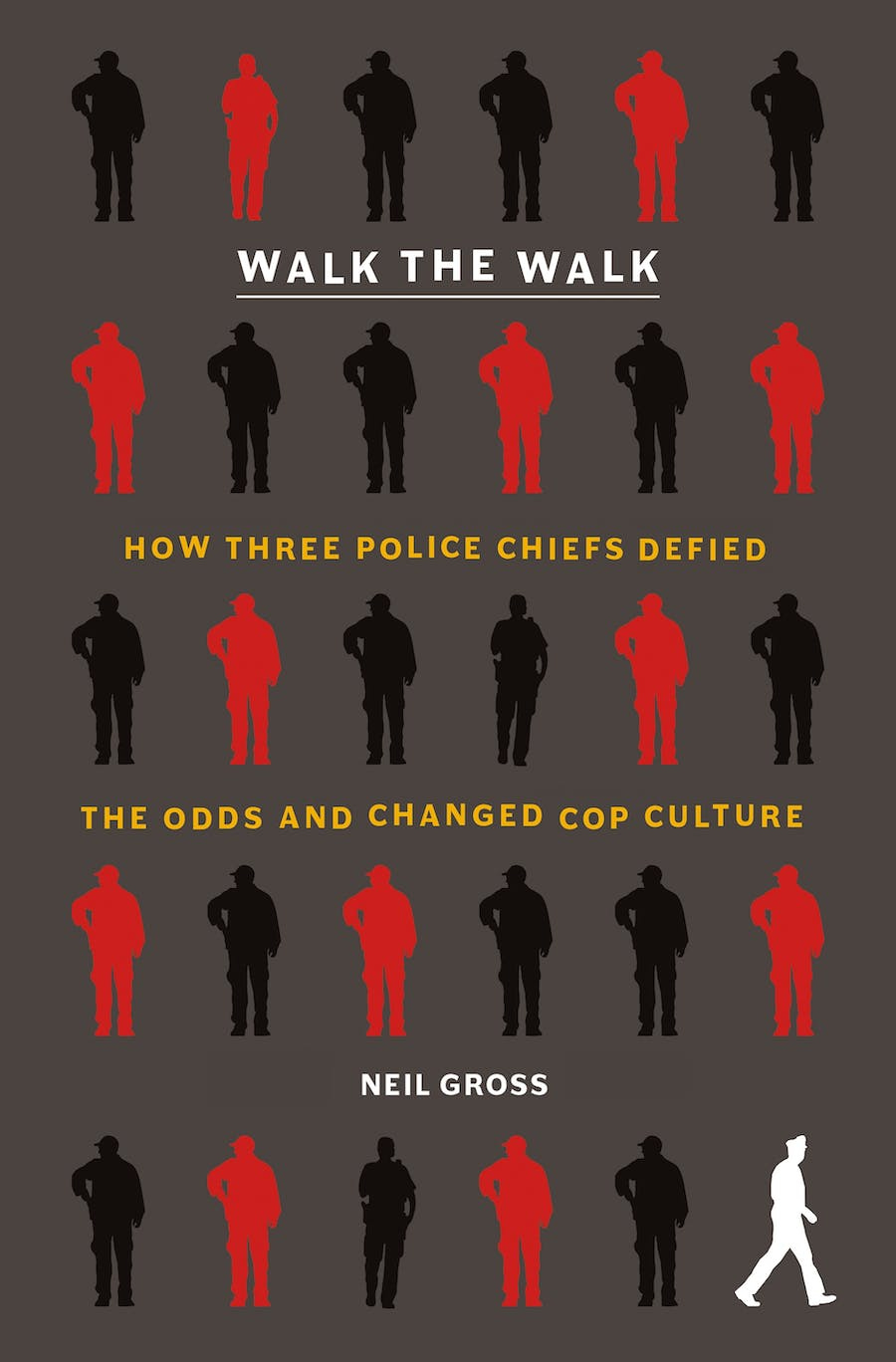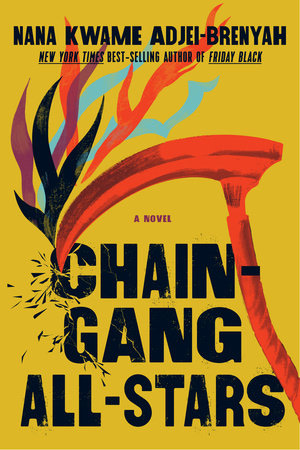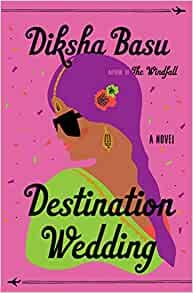IP Picks 🔎: The College Loan Grifter, a Police Procedural and a Songwriter Sleuth
➕ A Delhi-set version of 'Crazy Rich Asians'

Welcome to The Optionist! As always, thanks for reading. With the Academy Award nominations out this week — everyone on the West Coast got up at 5:30 a.m. for the announcement, right? — I was struck by two divergent reactions from the book community.
In a straightforward take, Kirkus touts the nine different films based on books that got at least one nomination. What really got my attention was this contrarian take from Lithub which asks, "Why are so few literary adaptations nominated for Oscars this year?" It notes that just 20 percent of the Best Picture nominees are based on books, down from 50 percent last year. (Also, fun trivia in the article: In six different years, all of the Best Picture nominees were based on books. Before you read the article to learn the six, see how many you can puzzle out on your own. If you're having trouble, take comfort in the fact that I was 0 for 6.)
Some of the answers to Lithub’s existential question are obvious to anyone (more books are going to TV instead), but others, I'm not so sure about (picking the wrong books, not doing justice to the source material?). It reminds me of my all-time favorite line from The Larry Sanders Show where a network executive (played perfectly by the great Josh Malina) tells Larry that, according to research, he should just tell the funny jokes and Larry responds, "How do you know which are the funny ones?"
What do you all think? Was this just a fluke, or does it represent some fundamental shift at the prestige end of the market? Of course, as we know, the overall market for pre-existing IP remains incredibly strong, even if it wasn't fully reflected in this year's Oscar nominations.
Now, on to this week's picks. I can't guarantee an Oscar nomination but there are some strong choices, including:
A real-life Ivy League internet start-up grifter who conned one of the world’s biggest financial institutions
A wild Hunger Games-esque novel featuring prisoners as gladiators
A charming rom-com with a Crazy Rich Asians vibe, set in the elite world of Delhi
A noir mystery perfect for someone looking for something with the flavor of Daisy Jones and the Six, but with a twist
An examination of police reform in three mid-sized cities that could be the inspiration for a modern-day police procedural
JOURNALISM
Con/True Crime
For fans of The Dropout and WeCrashed
Potential logline: A young up-and-comer promises to do good and make money by helping people get college aid. But after JP Morgan pays $175 million for her company, the whole thing is exposed as a house of cards.
“How Charlie Javice Got JPMorgan to Pay $175 Million for … What Exactly?” by Ron Lieber (New York Times, Jan. 21) Whenever I think I've had my fill of con and grifter stories, another fabulous one pops up (which is really a sad commentary on the times we live in, I guess). My new favorite scam involves Frank, the company which billed itself as changing the student aid process for college applicants (with late-night infomercial-style claims along the lines of "if we don't save you at least $1,000 on college, we'll refund your money"). Its founder: the requisite polished and charismatic young entrepreneur, Charlie Javice, doing a softer, gentler “I'm-in-it-for-the-altruism-and-the-money" spin on Elizabeth Holmes. Ever the young hustler, Javice started Frank right out of Wharton (why is my alma mater always producing a certain kind of person? Michael Milken, Elon Musk, Donald Trump, etc.) and within a few years, claimed to have helped 5 million students at 6,000 schools navigate the financial aid and student loan process (remember those numbers). She was so successful that JP Morgan paid $175 million for the company in September 2021 and offered Javice a $20 million bonus if she stayed on for a couple of years. But last week, Morgan sued Javice, claiming that Frank was built on lies. Its test of Frank's email list found it was mostly fakes. (Indeed, there are allegedly emails between Javice, Frank staffers and an outside consultant hired to generate the fake emails, with Javice at one point saying something like, “no one’s going to end up in an ‘orange jumpsuit’ for doing this,” to those questioning the strategy.) Clearly, Morgan didn't do its due diligence here. Back to those numbers. Well, there are only 5,900 schools accredited to accept federal financial aid, so Frank was claiming to have worked with more than 100 percent of them. Plus, 5 million students in about five years would equal an impossibly high percentage of the 2 million new students who attend college in a year, especially when the Frank website was only getting about 67K unique visits a month. So yeah, Morgan, do your homework. But I think the scandal taps in to lots of fun things about our con culture, the way we valorize young entrepreneurs, the anxiety of getting into college and the utter cluelessness of even our biggest institutions. (Javice understood how to play this perfectly, brushing off internal concerns with, “Listen, these old people don't understand, this is how it works — you fake it 'til you make it.'“) Plus, Javice is actually the kind of charismatic charmer along the lines of Adam Neumann and Elizabeth Holmes you need as a central character. REPS: I linked to the NYT article (Anonymous) here, because its takedown is pretty good, but there has been lots of great reporting, such as this Insider piece, or this one from Forbes. Javice also gave lots of interviews (also here and here), and there will also be plenty of court documents. I think one lesson of The Dropout vs. Bad Blood story is the importance of being first to the screen. So even though this scandal is still unfolding, I don't think it’s too early to hop in. With so much information made public so far, it might be possible to do this without acquiring any underlying rights, but my advice would be to pick a partner now who you can work with, and who will help with new information as it comes out.
BOOKS I LIKE (current)
Police Procedural
For fans of Blue Blood, We Own This City
Potential logline: The police chief of a mid-sized city battles entrenched institutions and his own force as he tries to reform policing with a series of innovative new ideas.
Walk the Walk: How Three Police Chiefs Defied the Odds and Changed Cop Culture by Neil Gross (Metropolitan Books, March) Ever since the Black Lives Matter protests provoked an examination of how TV's cop shows have contributed to the problems we have with policing (critics coined the term "copaganda"), I've been wondering what a new age cop show would look like, one that blended the elements of the genre that viewers love with a recognition that the world has changed. (I'll admit part of my interest is personal here: I love a good police procedural. It's one of my favorite genres. But I also think the criticism has merit and left me feeling uneasy about viewing choices in the same way that watching the NFL, which I also love, makes me uncomfortable when I think about the brain damage the sport causes.) One possibility might be found in this new book from former cop-turned-professor Neil Gross who profiles three police chiefs and their communities experimenting with new ways to police. The solutions across the three departments — Stockton, Calif., LaGrange, Ga. and Longmont, Co. — varied from more communication with the community to better recruiting and less punitive treatment of drug addicts, but all three featured bold chiefs willing to experiment. Think of it as a fresh spin on Blue Bloods (hey, 265 episodes and counting is nothing to sneeze at) with the depth and seriousness of We Own This City which centers on a reform-minded chief's struggles in a mid-sized city. That could make a compelling drama that satisfies the conventions of the genre and reflects how the world has changed. REPS: Aevitas
Mystery/Music Drama
For fans of Daisy Jones and the Six
Potential logline: A struggling singer/songwriter investigates the murder of his mentor, a ’70s music icon-turned-recluse, by digging into her past and discovers some shocking secrets.
The Last Songbird by Daniel Weizmann (Melville House, May) With the release of the adaptation of one of my favorite books of the last few years, Daisy Jones and the Six, fast approaching on March 3 on Prime (here's the trailer that just dropped), I've been keeping my eye out for stories that capture some of that energy. Not in terms of plot, per se, but the feeling that that Daisy Jones delivered, resembling nostalgia and gossip of a great "Behind the Music" episode, layered with a moving story of relationships, all mixed with a love letter to California and the state's music scene of the ’70s and ’80s. I think The Last Songbird succeeds in many ways and tops it off with a compelling noirish mystery. When struggling musician and Lyft driver Adam Zantz picks up reclusive ’70s music icon Annie Linden in Malibu, his life changes. She loves his music and encourages him to continue pursuing it as he spends the next three years as her personal driver. But when Annie turns up dead under a pier, Adam sets out to find who killed her, only to become a suspect himself. As he digs into her past to solve the crime, he discovers Annie’s forgotten enemies and lovers and a long-buried secret that might be the key to the crime. Along the way, Adam wonders how well he — or anyone, really — knew Annie. I was thoroughly entertained by the mix of rock nostalgia and mystery procedural here. And hats off to the producer who can land Stevie Nicks to play Linden. REPS: CAA
Sci-Fi/Thriller
For fans of Hunger Games, Gladiator, Fight Club
Potential logline: In an alt-America, where prisoners compete in gladiatorial death matches streamed to worldwide audiences, one champion on the verge of her freedom plots to help her fellow prisoners left behind.
Chain-Gang All-Stars by Nana Kwame Adjei-Brenyah (Pantheon, May) This is one of those books which I wasn't sure was for me at first, until this wildly entertaining and creative (though very violent) story just sucked me in. Set in what seems to be a dystopian alt-version of our present, it centers on Loretta Thurwar and Hamara Stacker, two stars and lovers in the female gladiator contests on the Criminal Action Penal Network (CAPE), which stages duels to the death between convicted murderers before thousands of fans in an auditorium, and millions more watching on TV. Meanwhile, large groups of anti-CAPE protesters, pushing to end the whole system, gather outside every match, and CAPE's overlords will do anything to keep the ratings up and the profits flowing in. After three years of fighting, Loretta is on the verge of earning her freedom (that's part of the catch; if you fight long enough and live, you can earn a pardon), and plotting how to help her fellow combatants when she gets out. The amount of world-building here is copious — the story shifts perspective a few times, so we get inside the world of both CAPE and the protestors and Adjei-Brenyah also includes copious footnotes that both expand our knowledge of this world and link the fantastical story back to real-life prison abuses and problems. There are elements of Hunger Games, Gladiator, Running Man and Orange is the New Black here, but blended in a way that's totally original. I'm gonna steal this line from an early review which I think captures the vibe of the novel: “Imagine The Hunger Games refashioned into a rowdy, profane, and indignant blues shout at full blast.” There's one pared-down version of this that works as a film and there's another more expansive version that's a limited or ongoing series. I can see both in my head. REPS: CAA
SECOND CHANCES (older material worth a new look)
Rom-com
For fans of Crazy Rich Asians and Jane Austen
Potential logline: Tina Das, her best friend and her divorced parents head to India for a rich cousin’s wedding. Hijinks, hilarity and romance ensue.
Destination Wedding by Diksha Basu (Ballantine Books, 2020) Readers of The Optionist know my fondness for a rom-com with a good twist. Destination Wedding scratches that itch. The book didn't land with the same impact as Crazy Rich Asians, but I think a screen adaptation, done right, could capture that energy. The story centers on Tina Das, her college bestie, Marianne, and her divorced parents, Neel and Radha, who are all headed to India for a cousin's elaborate wedding. Tina is chronically single. Marianne is debating whether her significant other is “the one.” Radha's traveling with her handsome Anglo boyfriend and Neel's got a matchmaker In India ready to find him a new wife. The wedding is over-the-top — 1,000 guests, elaborate staging, you get the picture. Meanwhile, Tina has to choose between two men: A sexy drummer who comes from the wrong side of the tracks in Bombay and an Australian she had an earlier flirtation with in London — all while Marianne has a fling with a hard-partying, rich Indian playboy. This is a fun, romantic comedy of manners and mistakes with a familiar plot, set in the unfamiliar (to me) but glamorous world of wealthy Delhi. It’s almost too on the nose to say Mindy Kaling’s light touch in bringing to life South Asian female characters would crush this. Visually, this could look stunning on screen — shot on location, full of colorful Indian costumes, the extravagant wedding, and perhaps with some Bollywood dance numbers thrown in the mix. Fun. REPS: UTA







